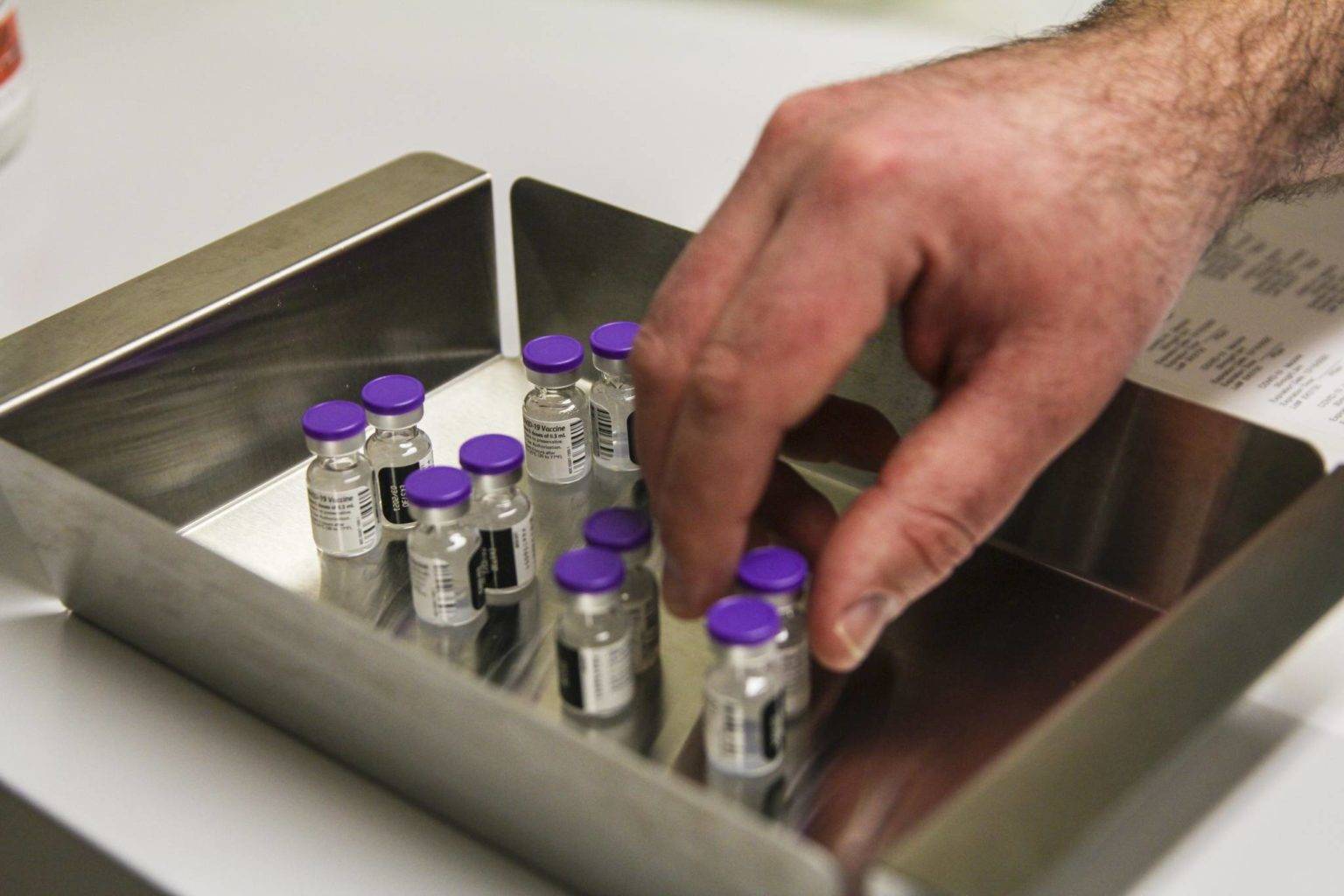The number of COVID-19 cases in Alaska is rising and health officials are encouraging increased health mitigation measures even as the tourism season starts to pick up again.
The City and Borough of Juneau reported 44 new COVID-19 cases Monday, four of which were nonresidents according to Deputy City Manager Robert Barr, who said city officials were concerned about the spread of virus variants in the community. Statewide, 120 new cases were reported with 96 people hospitalized for COVID-19.
Testing for variants takes time, Barr told the Empire in a phone interview, so while positive cases can be announced immediately it takes two to three weeks to find out which variants, if any, are present. But based on the number of cases and past reporting, Barr said he was confident the highly contagious delta variant was present in the community.
“Thing to know about the delta variant,” Barr said, “it is about twice as transmissible, it’s much easier to get, that’s why we’re seeing these numbers.”
Barr wasn’t able to say how many of the positive cases in Juneau were so-called vaccine breakthroughs, the term for when a fully vaccinated person tests positive for COVID-19, but that information was being compiled and should be available Tuesday.
The Alaska Department of Health and Social Services released a report on vaccine breakthrough infections on July 15. The report said 656 fully vaccinated people had tested positive for COVID-19 between Feb. 1 and June 30, roughly 4.2% of the total cases in that time. According to DHSS, 17 were hospitalized and two died, though the report noted the two deaths had significant comorbidities.
During the same time, there were 391 hospitalizations and 58 deaths among people who weren’t fully vaccinated, according to DHSS.
“It should be noted, in Alaska, 96% of all cases, 95% of all hospitalizations and 98% of all deaths to date were in unvaccinated people,” DHSS spokesperson Clinton Bennett said Monday in an email.
A fully vaccinated person aboard a cruise ship tested positive for COVID-19, city officials said Monday, though Barr said there would be no immediate changes to the city’s health guidelines. The positive person will be isolated and flown out of Juneau without interacting with the community, Barr said, though the city does work with local hotels for accommodations for COVID-positive people.
Variants of the COVID-19 virus appear to be gaining ground in Juneau, according to the city’s Unified Command Assessment, including the delta variant. The city is urging anyone with even mild COVID symptoms, including the vaccinated, to get tested. Testing is available free of charge and by appointment from the city at the Hagevig Regional Fire Training Site in the Mendenhall Valley. COVID-19 vaccine appointment information can be found online through https://juneau.org/covid-19/vaccine-information.
[They’re back: Large cruise ships return to Southeast Alaska]
Just over 65% of Juneau’s population is fully vaccinated, according to the city, and 80% of the eligible population have received their first dose. Barr said people in Juneau are still getting vaccinated and the city’s overall vaccination rate was still rising albeit slowly.
According to the state’s COVID-19 dashboard, the average daily case rate in Alaska has risen sharply since mid-July after reaching its lowest levels in June.
Alaska reached its lowest average daily case rate of 2020 on June 16, at 3.2, but the number of cases rose sharply in early July and as of Monday stood at 22.8, according to state data. The state’s alert level was lowered to the Low category for the first time since the beginning of the pandemic in early June but by July 3, was raised to Intermediate and then High on July 16. The state’s alert levels don’t impose any restrictions as they increase, but recommend increasing health mitigation measures such as masking.
Central Council of the Tlingit and Haida Indian Tribes of Alaska announced Monday it was returning to Phase 2 of the tribe’s COVID-19 response plan due to the increase in cases. In a statement, Tlingit and Haida said all its buildings would be closed to the public immediately and until further notice.
City and Borough of Juneau announced it was raising its community risk level to Level 2-Moderate on July 22, the day before the arrival of the first large cruise ship since the start of the pandemic. City officials are asking for masks to be worn in indoor public settings, and while the city’s alert levels do come with restrictions, at this point the city is only recommending health mitigation measures such as masking and social distancing regardless of vaccination status.
Masks are currently required in city facilities, and the CBJ Assembly is holding a special meeting Wednesday at 5:30 p.m. to discuss an emergency ordinance.
• Contact reporter Peter Segall at psegall@juneauempire.com. Follow him on Twitter at @SegallJnuEmpire.

